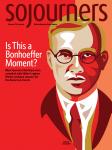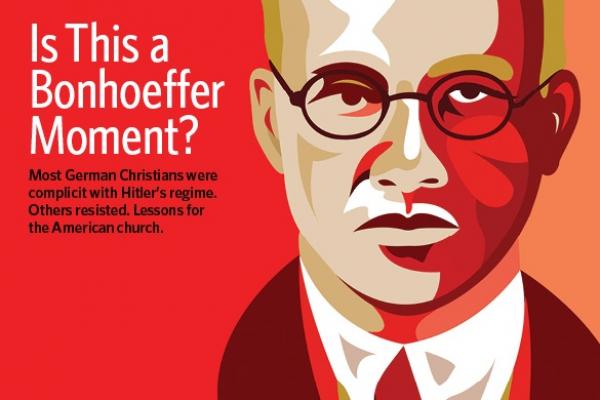THE PAGES OF this magazine rarely feature scathing reviews, but in 2011 we made an exception.
That year, in our February issue, we published Nancy Lukens’ critique of Bonhoeffer: Pastor, Prophet, Martyr, Spy, by Eric Metaxas. Lukens, a German professor who translated many of Dietrich Bonhoeffer’s works into English, described the book as “stunningly flawed,” and lambasted Metaxas for trying to sculpt the 20th-century German pastor into an evangelical warrior on a crusade against liberal Christianity. Metaxas “does both Bonhoeffer and contemporary readers a gross disservice in implying that evangelicals are immune from the tragic error of merging nationalistic fervor with Christian piety,” wrote Lukens.
Fast forward seven years: Metaxas’ Bonhoeffer biography boasts a bestseller sticker, and a resurgence of nationalistic fervor helped win Donald Trump the White House—and the explicit support of many white evangelical leaders, including Metaxas.
In this issue, we re-examine Bonhoeffer not as a caricatured hero, but as a complex figure who struggled to be a disciple of Jesus at a time when the loudest voices in the church swore allegiance to white nationalism. Our aim is not to draw simplistic comparisons between Nazi-controlled Ger-many and the U.S. in 2018, but rather to “learn from historical figures and communities who came through periods of ethical challenge better than others,” as scholars Lori Brandt Hale and Reggie Williams write in “Is This a Bonhoeffer Moment?”
And despite our differing contexts, we think this bespectacled German pastor still has much to teach us: “As much as the Christian would like to remain distant from political struggle,” says Bonhoeffer, “even here the commandment of love urges the Christian to stand up for [their] neighbor.”

Got something to say about what you're reading? We value your feedback!
